Scientific Method
The scientific method is a systematic way of investigating the natural world. It involves making observations, asking questions, forming hypotheses, conducting experiments, and analyzing data to draw conclusions.
Steps of the Scientific Method
- Observation: Make observations about the natural world and identify a problem or question to investigate.
- Question: Formulate a specific question related to the observation.
- Hypothesis: Develop a testable explanation or prediction for the question based on prior knowledge or research.
- Experiment: Design and conduct an experiment to test the hypothesis. This involves identifying variables, controlling conditions, and collecting data.
- Analysis: Analyze and interpret the data collected during the experiment.
- Conclusion: Draw a conclusion based on the analysis of the data. Determine if the hypothesis is supported or refuted, and consider the implications of the findings.
- Communicate: Share the results through written reports, presentations, or other means to contribute to the scientific community.
Key Concepts
- Variables: These are factors that can change or be manipulated in an experiment, including the independent variable (the one being tested) and the dependent variable (the one being measured).
- Controlled Experiment: This involves testing a hypothesis by comparing a control group with an experimental group under identical conditions, except for one variable.
- Reproducibility: For a scientific study to be considered valid, the results should be reproducible, meaning that other researchers should be able to conduct the same experiment and obtain similar results.
- Falsifiability: A hypothesis should be testable and potentially falsifiable, meaning that it can be proven false through observation or experimentation.
Study Tips
- Understand the importance of each step in the scientific method and how they are interconnected.
- Practice identifying variables and designing controlled experiments based on hypothetical scenarios.
- Review examples of scientific studies and consider how they follow the scientific method.
- Discuss the ethical considerations of conducting scientific research, including the treatment of living subjects and the responsible use of resources.
- Explore the historical development of the scientific method and how it has shaped our understanding of the natural world.
By mastering the scientific method, you will develop critical thinking skills and a deeper appreciation for the process of scientific inquiry.
[Scientific Method] Related Worksheets and Study Guides:
.◂Science Worksheets and Study Guides Sixth Grade. Maps as models of the earth/Contour models
Study Guide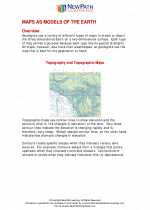 Maps as models of the earth/Contour models
Maps as models of the earth/Contour models  Worksheet/Answer key
Worksheet/Answer key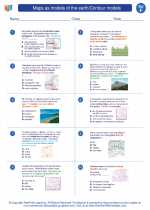 Maps as models of the earth/Contour models
Maps as models of the earth/Contour models  Worksheet/Answer key
Worksheet/Answer key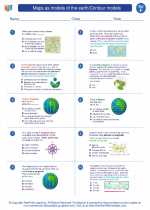 Maps as models of the earth/Contour models
Maps as models of the earth/Contour models  Worksheet/Answer key
Worksheet/Answer key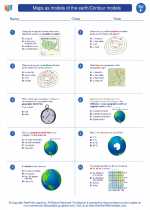 Maps as models of the earth/Contour models
Maps as models of the earth/Contour models  Vocabulary/Answer key
Vocabulary/Answer key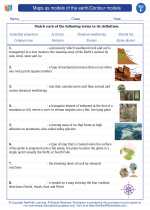 Maps as models of the earth/Contour models
Maps as models of the earth/Contour models  Vocabulary/Answer key
Vocabulary/Answer key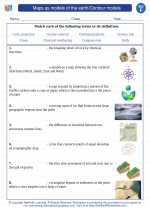 Maps as models of the earth/Contour models
Maps as models of the earth/Contour models  Vocabulary/Answer key
Vocabulary/Answer key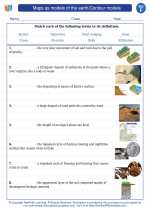 Maps as models of the earth/Contour models
Maps as models of the earth/Contour models  Vocabulary/Answer key
Vocabulary/Answer key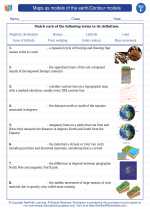 Maps as models of the earth/Contour models
Maps as models of the earth/Contour models  Vocabulary/Answer key
Vocabulary/Answer key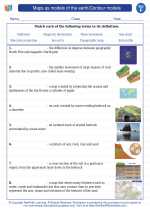 Maps as models of the earth/Contour models
Maps as models of the earth/Contour models 

 Worksheet/Answer key
Worksheet/Answer key
 Worksheet/Answer key
Worksheet/Answer key
 Worksheet/Answer key
Worksheet/Answer key
 Vocabulary/Answer key
Vocabulary/Answer key
 Vocabulary/Answer key
Vocabulary/Answer key
 Vocabulary/Answer key
Vocabulary/Answer key
 Vocabulary/Answer key
Vocabulary/Answer key
 Vocabulary/Answer key
Vocabulary/Answer key

The resources above cover the following skills:
EARTH AND SPACE SCIENCE
Earth’s Systems
Students who demonstrate understanding can:
Develop a model to describe the cycling of Earth’s materials and the flow of energy that drives this process.